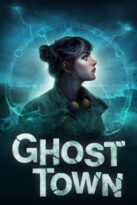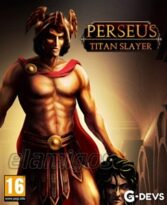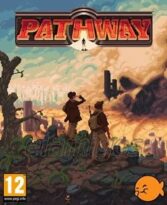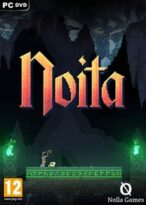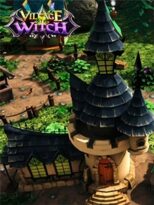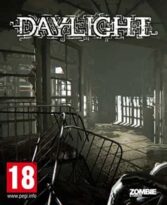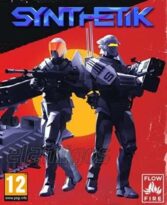This One Skill in Disco Elysium Actually Turns Harry Into a Real Detective
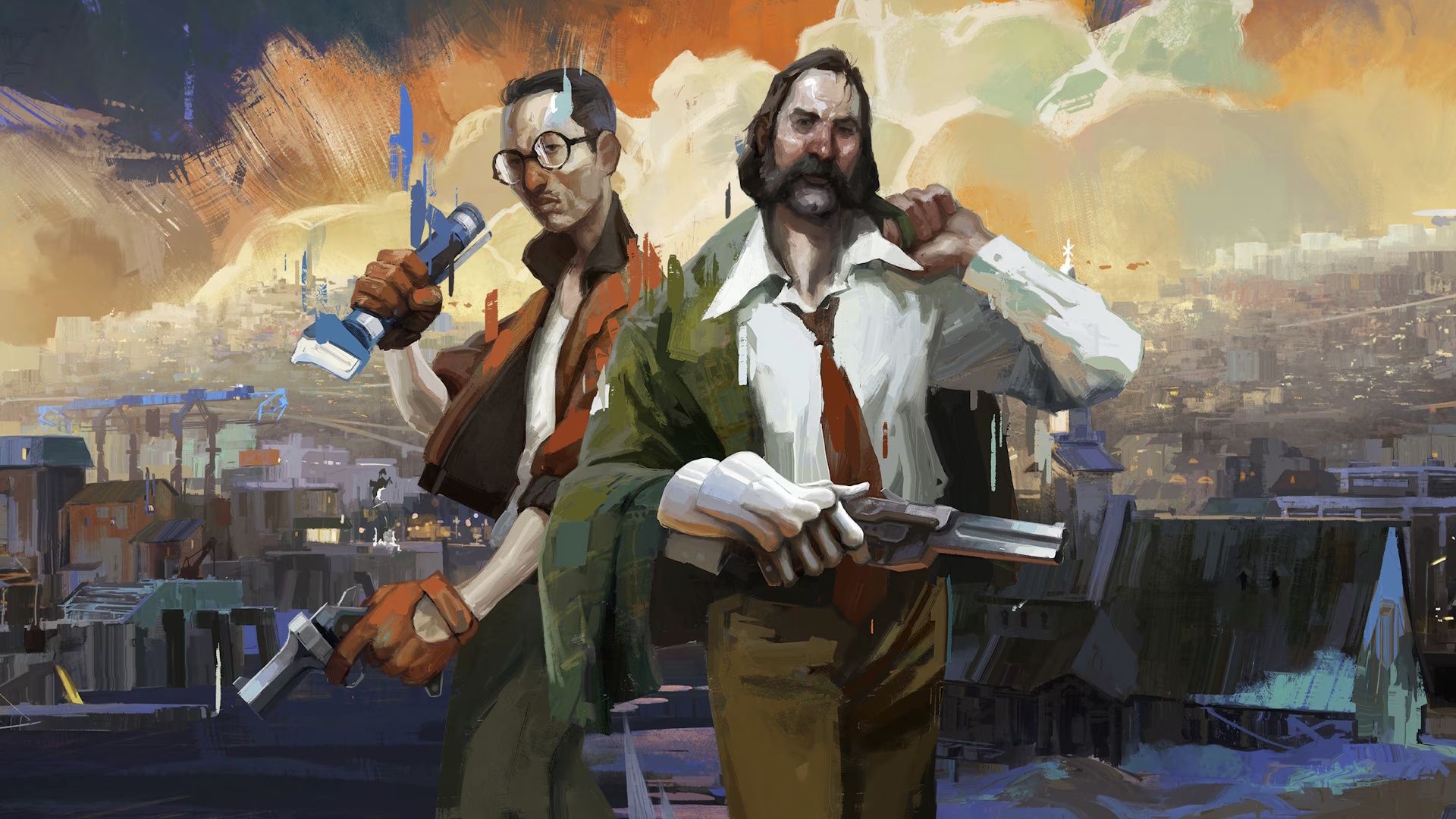
Visual Calculus is a skill in Disco Elysium that belongs to the game’s *Intellect* category and lets protagonist Harry Du Bois recreate mental visuals of past events, including crime scenes. It can produce concrete observations that open new leads in investigations, and it can also lead to speculative reconstructions when a check pushes the skill beyond the available evidence.
- Visual Calculus overview
- How it changes investigations
- Notable examples from the game
- Limits and excess
- Summary
Visual Calculus overview
Visual Calculus appears as one of Harry’s intelligence-based skills. When a player passes Visual Calculus checks, the game presents reconstructed visuals or deductions about a scene. These reconstructions often describe details a trained eye could notice and, therefore, can provide factual clues for further investigation.
How it changes investigations
When successful, the skill frequently yields information that leads to new investigative steps. For example, a passed check can identify anomalies in a scene or suggest potential points of interest. Consequently, Visual Calculus can directly affect which leads the player follows next.
Notable examples from the game
Early in the game, Visual Calculus responds to one of Harry’s own questions during an apartment inspection. Harry asks, “What am I doing?” and the skill replies, “Something you’ve done before,” which provides a factual observation tied to Harry’s past actions.
During the main crime-scene investigation, a Visual Calculus check on the area around the body revealed an anomaly in the footprints. That successful check coincided with earning the Goodest of the Good Cops achievement after gaining Detective Kim Kitsuragi’s trust for the first time. 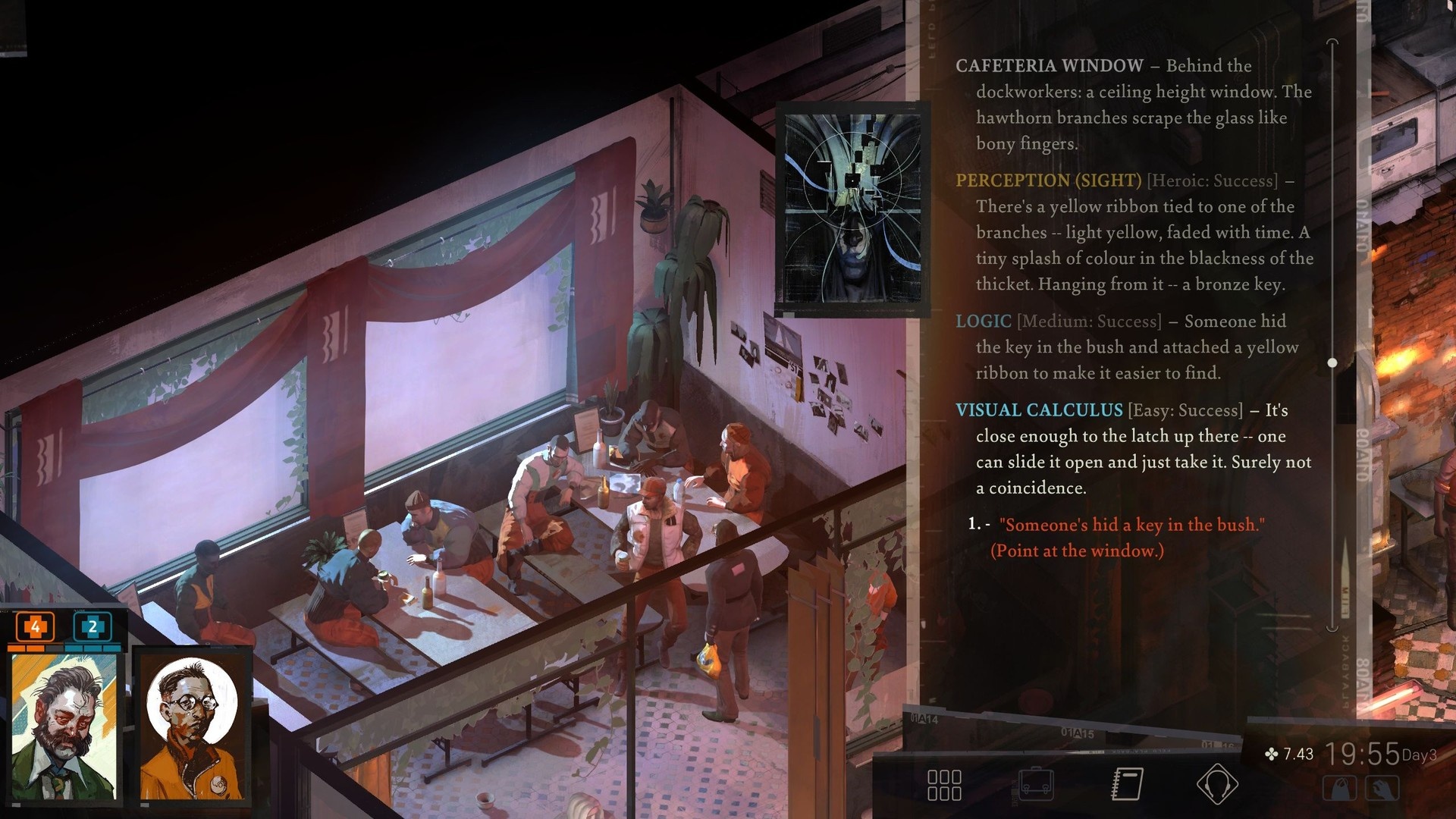
Later, when examining a suspect named Klaasje, a passed Visual Calculus check on her bedroom window identified three potential shot angles that could have produced the fatal wound. One of those potential angles pointed toward the boardwalk across the river. The game then provides content that lets the player inspect each of those three potential points, which can lead to additional side content. 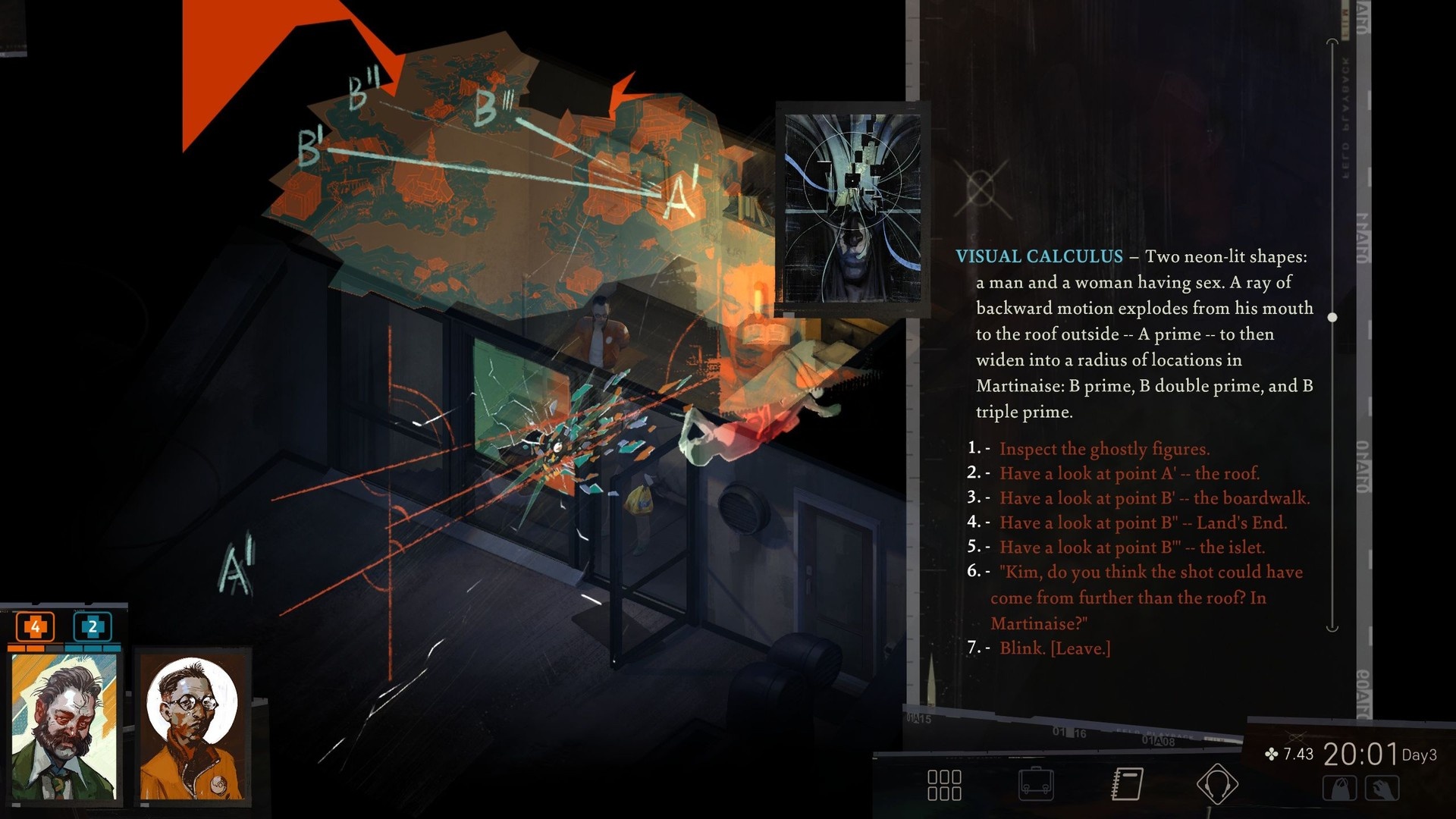
Limits and excess
Despite producing concrete observations at times, Visual Calculus can also generate speculative details. For instance, when Harry examines architectural features such as broken arches near the apartment complex, the skill may lead him into extended chains of conjecture about what occurred there. In the Klaasje example, the identified shot angles include possibilities that require further player investigation to confirm or rule out.
Summary
In short, Visual Calculus is a gameplay mechanic that can supply objective-seeming evidence and lead to new investigative paths. It has clear, concrete effects—such as revealing footprint anomalies and identifying potential shot angles—and it can also push the player into speculative side content when checks extend beyond straightforward observation.
